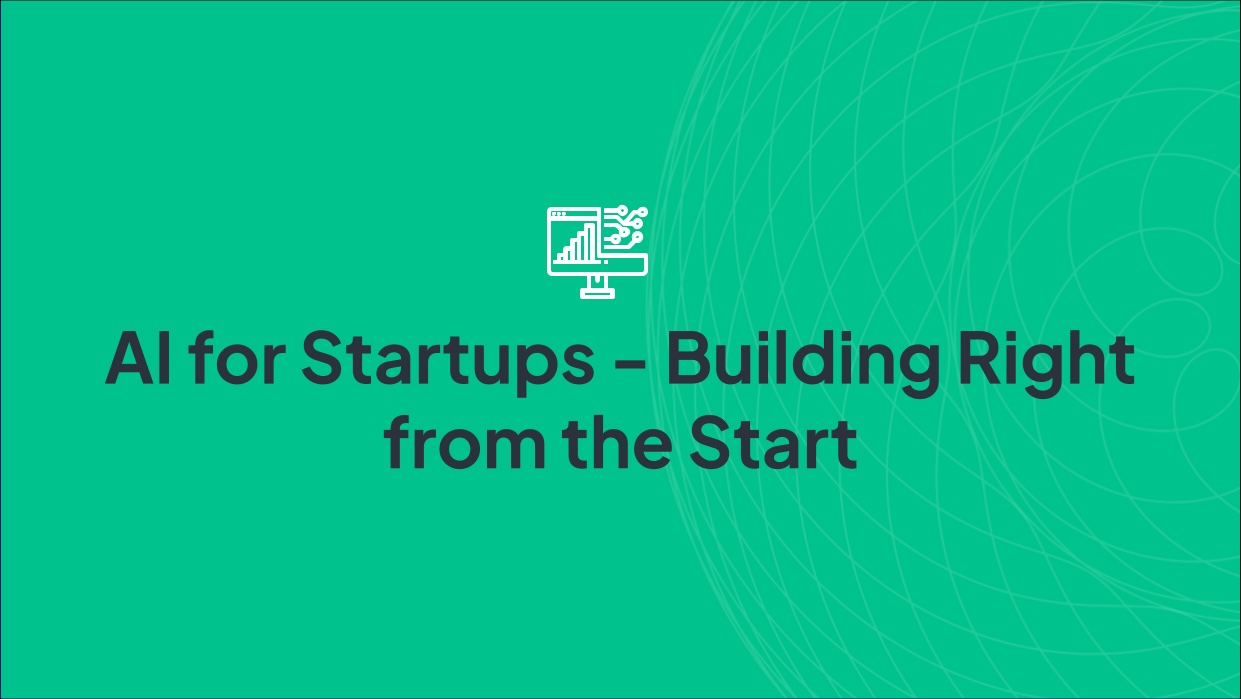The vast majority of founders aren’t accountants. Most (hopefully all!) have a solid grasp of what they must achieve to reach and sustain profitability, but without experience even basics like monthly profit and loss accounting can quickly become headaches. In this fourth article in our series on how AI is impacting accounting and finance roles and opportunities, we’re going to take a look more specifically at startups – companies with at least some track record and venture capital backing.
Start Fast, Build Faster
The good news is that regardless of how much funding is in place, startups are in an excellent position to take advantage of AI in accounting and finance. Without legacy accounting platforms and complex revenue and costs developed over years of business, startups can build lean, AI-driven accounting teams from day one. It’s not just about building lean teams – AI is a game changer, allowing startups to leverage limited resources and create relatively advanced financial analytics from the moment they hit the ground.
Using AI, startups can build financial data structures that adapt seamlessly to growth. When every dollar counts, AI can create real-time financial visibility that allows for faster decision making backed by more accurate data. The speed transformation is remarkable: what might have been weekly or even monthly analysis is now taking moments. This doesn’t just create faster decision making, it creates better decision making. Not perfect decision making, but certainly more consistent, responsive, and agile.
One of the key developments AI has enabled is the “multiplication effect,” whereby startups can employ one person where perhaps previously three or four might have been necessary, without any deterioration in output. As John Truong, head of Technology Innovation at Attivo notes, “It allows lean teams to remain lean for much longer.”
Effective and well-considered implementation of AI solutions can reduce human errors, analyze thousands of financial data points in moments, and even begin to make basic strategic recommendations.
Learn What to Automate and What Not To
Knowing where to apply AI effectively is crucial to implementing a successful startup finance strategy. AI has already revolutionized basic business and accounting tasks like document review, data comparison, and contract writing and analysis. But it should be considered in the same light as hiring a brilliant intern – great, but all of their work needs to be checked thoroughly!
Where AI is still struggling is in the more in-depth strategic analysis that requires human and business context. AI might be able to make basic recommendations, which over time will get better as it learns your business, but it cannot consider the human, often irrational decisions that drive markets.
It should also be remembered that AI likes to provide an answer even when it might not “know” one. The tendency to hallucinate means that the need for oversight is as important as ever, even if it might not be a real intern doing the legwork.
Building Right: A Founder’s Guide
It is also important to maintain realistic expectations about current AI capabilities. As John Truong puts it: “Rely on it, but always verify it.” Choosing an AI product that delivers on promises is crucial. There are many products that make spectacular promises but fail to deliver and end up requiring constant monitoring, which at least partly defeats the original intent.
It’s also important not to just go it alone, especially if you lack genuine expertise in both finance and AI technologies. With so many new AI products on the market, it’s essential to get help in choosing systems and processes that will deliver on expectations. Few things are more frustrating to founders – who want to spend their time building their business – than financial and accounting processes that aren’t delivering.
In a world where speed and efficiency determine survival, AI isn’t just an advantage – it’s essential infrastructure. If founders build smart from the start, AI can and will deliver powerful productivity and efficiency, maintain lean teams for longer, and stretch budgets far beyond what was previously possible.



